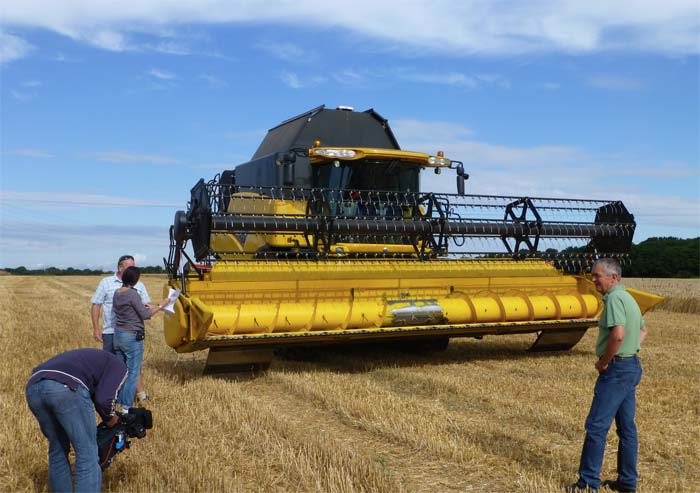
Further clarification of some of the more controversial elements of the new Common Agricultural Policy has been issued by Defra ahead of its introduction in the New Year.
The additional information covers issues including the Greening element of the CAP and who is classified as an ‘active farmer’.
The Greening information explains one of the more tricky parts of the policy, namely what is officially classed as a hedge. The Rural Payments Agency (RPA) definition is a row of bushes on an arable farm that is at least 20 metres long. A shorter row of bushes that meets other hedges at either end is also included, and hedges with gateways and gaps, and those on banks, also qualify.
Andrew Jamieson, agricultural advisor with Carlisle and North East based H&H Land and Property, said: “Farmers have been waiting for the official definition of what constitutes a hedge, and I would advise those who don’t know whether theirs make the grade to check them against the new guidance.
“The RPA information also clarifies that there is no maximum width or height for a hedge, so farmers can use newly planted hedges in their claims. They can also claim for hedges separated from the field if they are less than two metres away, for example, if there is a ditch between the field and the hedge.”
Hedges are counted as part of the Ecological Focus Area (EFA) and must comply with the official definition for farmers to claim the 30% extra Greening payment alongside the new Basic Payment Scheme (BPS) from the start of next year.
Buffer strips can also count as EFA features when they are next to a watercourse or are parallel with or on a slope that leads to a watercourse. They must be at least one metre wide and the only man-made separation allowed from the watercourse is a fence if the strip is to be eligible.
Another issue that has caused confusion is what can be classed as fallow land. The new Defra guidance makes it clear that land used to store bales of hay, silage, straw, muck or farm machinery cannot be declared fallow.
The EFA fallow period runs from January 1st to 30th June. During the period, farmers are permitted to use herbicides and cultivation to control weeds, sow wild bird seed mixes and carry out drainage work. Grass seed can also be sown on the fallow land so long as there is no agricultural production on it, such as grazing or harvesting, until after 30th June.
Andrew said: “Arable farmers should now know the rules on cropping and the number of crops and in what proportions they must grow to meet the greening rules. These arable crops must be in the ground during the inspection period from May 1st to 30th June.
“The new information also clarifies that farmers who want to plough up or improve land that has not been cultivated for at least 15 years, have to get consent from Natural England, even if they are not claiming BPS.”
CAP reform is aiming to eradicate ‘slipper’ farming and the new Defra guidance includes the definition of an active farmer. Those who make money from their land for non-agricultural activities such as permanent sports and recreation grounds, airports, railway services, real estate services or waterworks are not classed as active farmers and cannot claim BPS on land used in this way.
Mr Jamieson said: “Who is and who is not considered an active farmer has been one of many issues up for debate as part of CAP reform.
“We now have a clear definition – someone who carries out an agricultural activity, including producing, rearing or growing agricultural products, harvesting, milking, breeding animals and keeping animals for farming purposes, and maintaining an agricultural area.”
The value of entitlements will be different for each region. SDA entitlements will be almost the same as non-SDA but because of the Greening element and the Young Farmer payment, these will be lower than SPS. However, moorland entitlements will be higher than SPS.
“SPS entitlements will automatically become BPS on January 1st 2015,” said Andrew.
“Active farmers can get more BPS entitlements by buying or leasing from someone else, and Young Farmers or new entrants to farming can apply for entitlements from the national reserve.
“BPS entitlements can be transferred from early 2015 with or without land. The person transferring the entitlements does not need to be an active farmer, but they need to be registered on the CAP information service. However the person receiving the entitlements must be an active farmer at the time of the transfer.”
